Ziggy Marley
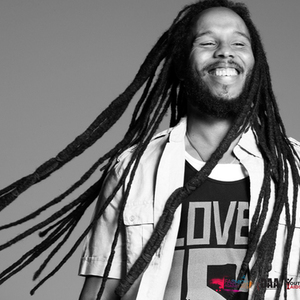
- Genre:
- Reggae
- Meta styles:
- Contemporary Reggae, Reggae-Pop
David Nesta "Ziggy" Marley (born October 17, 1968, Trenchtown) is a Grammy-winning jamaican musician. He is the oldest son of Rita and Bob Marley, the legendary roots reggae singer. His mother Rita called and baptised him David, but his father Bob nicknamed him "Ziggy" in reference to his childhood nickname. Born in Saint Ann Parish, Jamaica, Marley learned how to play guitar and drums from his father.
A native of Kingston, Jamaica, Ziggy Marley first sat in on recording sessions with his father's band, legendary reggae troupe Bob Marley and the Wailers, when he was ten years old. Joining with his three siblings to become The Melody Makers, Ziggy crafted his own soulful sound blending blues, rnb, hip-hop and roots reggae.
After their first two albums, Play The Game Right (1985) and Hey World! (1986), The Melody Makers earned their first Grammy (Best Reggae Recording) for Conscious Party (1988), an album produced by Talking Heads Chris Frantz and Tina Weymouth which included the hit songs "Tomorrow People" and "Tumbling Down."
Subsequent albums included the Grammy-winning One Bright Day (1989), Jamekya (1991), Joy and Blues (1993), Free Like We Want 2 B (1995), their third Grammy winner Fallen is Babylon (1997), Spirit of Music (1999) and Ziggy Marley & the Melody Makers Live, Vol 1 (2000), which featured some of their biggest hits as well as a cover of Bob Marley's "Could You Be Loved."
While selling records by the millions and selling out countless concerts with the Melody Makers, including a recent European tour, Ziggy Marley has never lost sight of his foundation of faith, fellowship and family.
After two decades as the driving creative force behind The Melody Makers, Ziggy stepped out on his own with his first solo album, Dragonfly (2003). Never content to rehash the success of his past, Ziggy uses Dragonfly to explore new ground and create his own distinctive musical identity as a solo artist.
"Working on my own gave me a chance to take my time and experiment a lot," Ziggy says of the material on Dragonfly." It took one year to finish this record. It's the longest I've ever worked on a album. It's different when you on your own. At some point it's scary and then at another it's a drive that makes you focus more."
Although the members of the most close-knit musical families often yearn to step out on their own, for Ziggy, a solo debut was not a long-awaited goal. "It's not something that I wished for since I began doing music," he says. "It was just the circumstances, and I wanted to be true to myself and what I feel. The record has strong messages and it feels good."
In addition to being Ziggy's first album of solo material, for Dragonfly he felt it was time for a change of scene. "Usually we record in Kingston. These songs were written in Jamaica and recorded in America. I did the first set of recordings in a house in Miami and then went to L.A. rented a house, set up my equipment and basically did the rest there. I left Jamaica for a while, because as an artist I need to experience different things, to see the world and have different energies. Living in one place is not good for me and I was tired of making music in a studio setting. I wanted it to be more like everyday life a part of me.
"As an individual, I've opened up more by traveling outside Jamaica, and I've been more able to be open to people and ideas. It helps me to grow as a person to be outside of my element; to be on my own in a strange place meeting people. That's good for me not to be in my secure domain."
The evidence of that growth is everywhere on Dragonfly.
On July 2nd, 2006, Ziggy released his second album, Love is My Religion. He states "This album is from my heart," and he feels that he embraces his spiritual and emotional side of life. This album show Ziggy coming into his own as an artist, as he wrote all of the songs for the album and played nearly all of the instruments.
Love is My Religion is a testament to Ziggy Marley's talent as he follows in the footsteps of his father, the Legend.
- Sort by
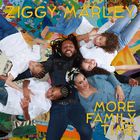
More Family Time
- Year:
- 2020
- Tracks:
- 10
- Bitrate:
- 320 kbps
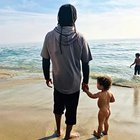
Rebellion Rises
- Year:
- 2018
- Tracks:
- 10
- Bitrate:
- 320 kbps
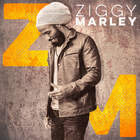
Ziggy Marley
- Year:
- 2016
- Tracks:
- 12
- Bitrate:
- 320 kbps
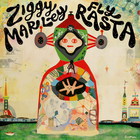
Fly Rasta
- Year:
- 2014
- Tracks:
- 10
- Bitrate:
- 320 kbps
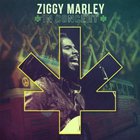
In Concert
- Year:
- 2013
- Tracks:
- 14
- Bitrate:
- 238 kbps
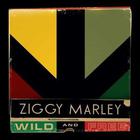
Wild And Free
- Year:
- 2011
- Tracks:
- 12
- Bitrate:
- 320 kbps
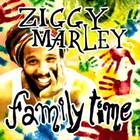
Family Time
- Year:
- 2009
- Tracks:
- 13
- Bitrate:
- 320 kbps
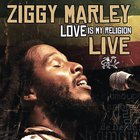
Love Is My Religion (Live)
- Year:
- 2007
- Tracks:
- 20
- Bitrate:
- 320 kbps
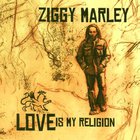
Love Is My Religion
- Year:
- 2006
- Tracks:
- 15
- Bitrate:
- 320 kbps
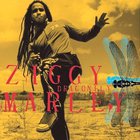
Dragonfly
- Year:
- 2003
- Tracks:
- 11
- Bitrate:
- 320 kbps
 Andrew Tosh 1
Andrew Tosh 1 Ben Harper 27
Ben Harper 27 Big Mountain 10
Big Mountain 10 Black Uhuru 31
Black Uhuru 31 Inner Circle 31
Inner Circle 31 Morgan Heritage 14
Morgan Heritage 14 Steel Pulse 27
Steel Pulse 27 Stephen Marley 8
Stephen Marley 8 The Wailers 9
The Wailers 9 Aswad 21
Aswad 21 Caribbean Pulse 1
Caribbean Pulse 1 Israel Vibration 31
Israel Vibration 31 Jah Shaka 5
Jah Shaka 5 Julian Marley 7
Julian Marley 7 Ky-Mani Marley 4
Ky-Mani Marley 4 Rebelution 17
Rebelution 17 Tribal Seeds 10
Tribal Seeds 10 Buju Banton 22
Buju Banton 22 Jack Johnson 24
Jack Johnson 24 Ozomatli 10
Ozomatli 10 The Wailing Souls 4
The Wailing Souls 4 Damian Marley 10
Damian Marley 10 Maxi Priest 11
Maxi Priest 11 Michael Franti and Spearhead 4
Michael Franti and Spearhead 4 Shinehead 7
Shinehead 7